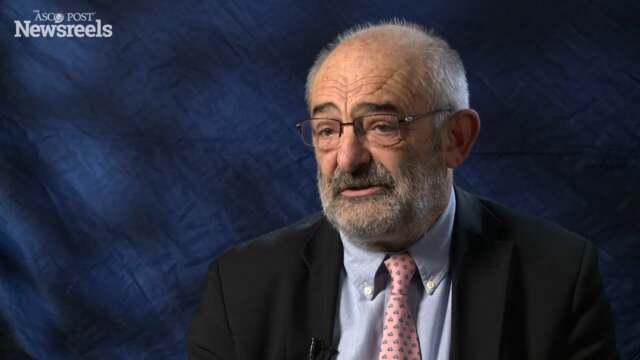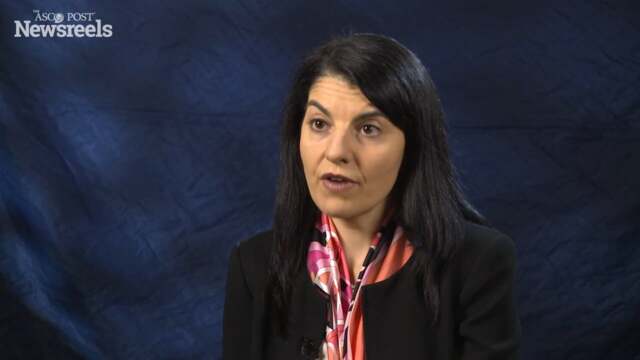Looking Ahead With the New ECCO President: Peter L. J. Naredi, MD, PhD
2015 European Cancer Congress
Incoming ECCO President, Peter L. J. Naredi, MD, PhD, of the University of Gothenburg, discusses his upcoming year as the new ECCO President, his vision for the organization, and his views on cancer treatment today.
Jean-Yves Douillard, MD, PhD
Jean-Yves Douillard, MD, PhD, of Centre R Gauducheau, reviews new clinical trials and data on systemic and radiation treatment of small cell lung cancer.
M. Catherine Pietanza, MD
M. Catherine Pietanza, MD, of Memorial Sloan Kettering Cancer Center, discusses rovalpituzumab tesirine, a promising DLL3-targeted antibody drug conjugate, the first precision treatment for small cell lung cancer (Abstract 7LBA).
Benjamin Besse, MD, PhD, and Tony Mok, MD
Benjamin Besse, MD, PhD, of the Institut Gustave Roussy, and Tony Mok, MD, of The Chinese University of Hong Kong, discuss this phase II trial of atezolizumab as first-line or subsequent therapy for locally advanced or metastatic PD-L1–selected NSCLC (Abstract 17LBA).
Jonathan E. Rosenberg, MD
Jonathan E. Rosenberg, MD, of Memorial Sloan Kettering Cancer Center, discusses this pivotal study of an investigational immunotherapy that has shown increased and durable responses, with a relatively benign toxicity profile (Abstract 21LBA).
Matti S. Aapro, MD
Matti S. Aapro, MD, of IMO Clinique de Genolier, offered a case presentation and a cross-disciplinary approach to finding the best way to effect a cure with minimal impact on quality of life.





